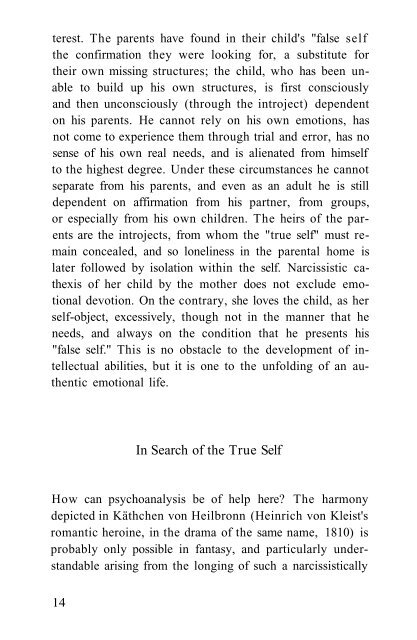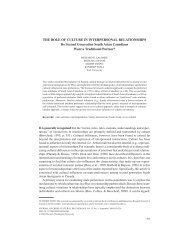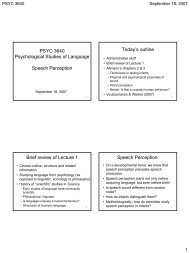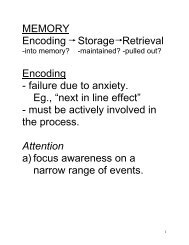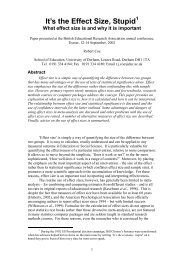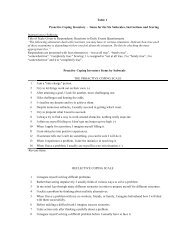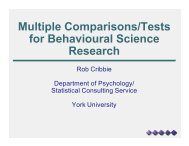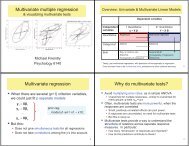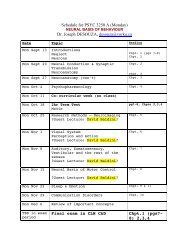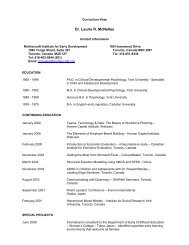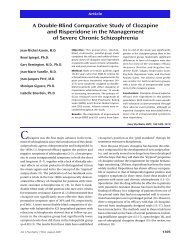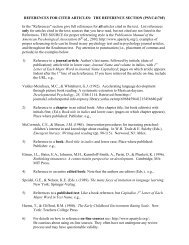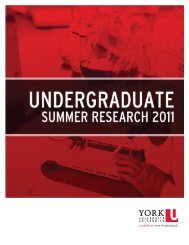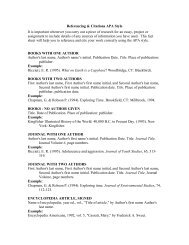The Drama of the Gifted Child (The Search for the True Self)
The Drama of the Gifted Child (The Search for the True Self)
The Drama of the Gifted Child (The Search for the True Self)
Create successful ePaper yourself
Turn your PDF publications into a flip-book with our unique Google optimized e-Paper software.
terest. <strong>The</strong> parents have found in <strong>the</strong>ir child's "false self<br />
<strong>the</strong> confirmation <strong>the</strong>y were looking <strong>for</strong>, a substitute <strong>for</strong><br />
<strong>the</strong>ir own missing structures; <strong>the</strong> child, who has been unable<br />
to build up his own structures, is first consciously<br />
and <strong>the</strong>n unconsciously (through <strong>the</strong> introject) dependent<br />
on his parents. He cannot rely on his own emotions, has<br />
not come to experience <strong>the</strong>m through trial and error, has no<br />
sense <strong>of</strong> his own real needs, and is alienated from himself<br />
to <strong>the</strong> highest degree. Under <strong>the</strong>se circumstances he cannot<br />
separate from his parents, and even as an adult he is still<br />
dependent on affirmation from his partner, from groups,<br />
or especially from his own children. <strong>The</strong> heirs <strong>of</strong> <strong>the</strong> parents<br />
are <strong>the</strong> introjects, from whom <strong>the</strong> "true self" must remain<br />
concealed, and so loneliness in <strong>the</strong> parental home is<br />
later followed by isolation within <strong>the</strong> self. Narcissistic ca<strong>the</strong>xis<br />
<strong>of</strong> her child by <strong>the</strong> mo<strong>the</strong>r does not exclude emotional<br />
devotion. On <strong>the</strong> contrary, she loves <strong>the</strong> child, as her<br />
self-object, excessively, though not in <strong>the</strong> manner that he<br />
needs, and always on <strong>the</strong> condition that he presents his<br />
"false self." This is no obstacle to <strong>the</strong> development <strong>of</strong> intellectual<br />
abilities, but it is one to <strong>the</strong> unfolding <strong>of</strong> an au<strong>the</strong>ntic<br />
emotional life.<br />
In <strong>Search</strong> <strong>of</strong> <strong>the</strong> <strong>True</strong> <strong>Self</strong><br />
How can psychoanalysis be <strong>of</strong> help here? <strong>The</strong> harmony<br />
depicted in Käthchen von Heilbronn (Heinrich von Kleist's<br />
romantic heroine, in <strong>the</strong> drama <strong>of</strong> <strong>the</strong> same name, 1810) is<br />
probably only possible in fantasy, and particularly understandable<br />
arising from <strong>the</strong> longing <strong>of</strong> such a narcissistically<br />
14


